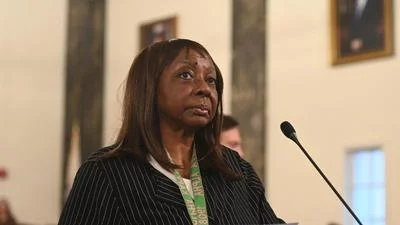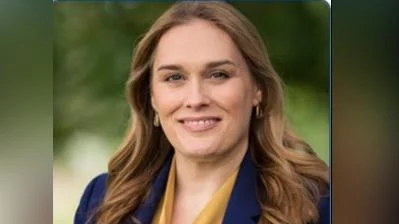Amy Korte | Executive Vice President | Illinois Policy Institute website
Amy Korte | Executive Vice President | Illinois Policy Institute website
CHICAGO (Aug. 19, 2024) – As the Democratic National Convention begins in Chicago this week, city and state leaders and their progressive policies will be under scrutiny.
New polling from the Illinois Policy Institute indicates that Mayor Brandon Johnson’s disapproval rating has risen to 63%, marking the highest for any first-term mayor in the city's history. Johnson’s unpopularity is attributed to ongoing issues related to crime, education, taxes, and employment.
In March, voters rejected Johnson’s proposed real estate transfer tax hike. Additionally, he has been unable to secure support for $12 billion in new taxes or obtain $1.1 billion in additional funds for Chicago Public Schools from the state of Illinois.
“Delegates enjoying the city for the DNC will experience the clean streets and reinforced public safety measures the city implemented for political elites. It’s an incomplete picture. Everyday Chicagoans are still very much struggling and tiring of the status quo,” said Josh Bandoch, head of policy at the Illinois Policy Institute.
Key issues facing Chicago include:
Crime:
- Under Cook County State’s Attorney Kim Foxx's leadership, more felony cases were dropped, and the homicide arrest rate reached a 24-year low in 2023.
- Violent offenses have increased overall; robberies rose by 21% from 2023 to 2024, and school-based violent crimes spiked by 26% between 2022 and 2023.
- Chicago has seen elevated carjackings and record-high motor vehicle thefts in recent years.
- The city's violent crime rates remain higher than both national averages and those of other major cities.
Economy:
- Chicago faces a projected $986 million budget deficit next year.
- The metro area holds the highest unemployment rate among the nation's 50 largest cities.
- Nine major corporations have relocated their headquarters out of Chicago in recent years.
- The city's population has declined for nine consecutive years, now at its lowest level since 1920.
- The Loop has a record-high office vacancy rate of 25.8%, exacerbated by riots and loitering during summer 2020.
- Rents across Chicago have increased by 41% since 2015, with average monthly rent now at $2,200.
Education:
- Only 26% of students in grades three through eight are reading at grade level citywide; just 18% are proficient in math.
- Chronic absenteeism affects 40% of students in Chicago Public Schools.
- Despite nearly doubling district spending since 2012, student outcomes have worsened.
- City leaders pushed to end Illinois' only school choice program that benefited approximately 15,000 low-income minority students.
- The Chicago Teachers Union has made over $10 billion worth of new demands unrelated to benefits or salary following its support for Johnson's mayoral campaign.
“Residents want to see progress on their top concerns – less crime, lower taxes and more housing affordability. It’s time city and state leaders heed them – every time a progressive policy is placed on the ballot, it’s soundly defeated,” Bandoch said. “National politicians should be hesitant before embracing policies that have failed in Chicago.”
MEDIA ALERT: Illinois Policy Institute experts will be available for interviews during convention week.
To read more about Chicago today, visit illin.is/DNC.






 Alerts Sign-up
Alerts Sign-up